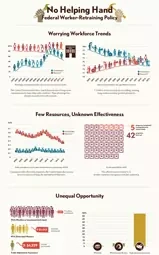- Iran
- Israel-Hamas
-
Topics
FeaturedIntroduction Over the last several decades, governments have collectively pledged to slow global warming. But despite intensified diplomacy, the world is already facing the consequences of climate…
-
Regions
FeaturedIntroduction Throughout its decades of independence, Myanmar has struggled with military rule, civil war, poor governance, and widespread poverty. A military coup in February 2021 dashed hopes for…
Backgrounder by Lindsay Maizland January 31, 2022
-
Explainers
FeaturedDuring the 2020 presidential campaign, Joe Biden promised that his administration would make a “historic effort” to reduce long-running racial inequities in health. Tobacco use—the leading cause of p…
Interactive by Olivia Angelino, Thomas J. Bollyky, Elle Ruggiero and Isabella Turilli February 1, 2023 Global Health Program
-
Research & Analysis
Featured
Terrorism and Counterterrorism
Violence around U.S. elections in 2024 could not only destabilize American democracy but also embolden autocrats across the world. Jacob Ware recommends that political leaders take steps to shore up civic trust and remove the opportunity for violence ahead of the 2024 election season.Contingency Planning Memorandum by Jacob Ware April 17, 2024 Center for Preventive Action
-
Communities
Featured
Webinar with Carolyn Kissane and Irina A. Faskianos April 12, 2023 Academic and Higher Education Webinars
-
Events
FeaturedJohn Kerry discusses his work as U.S. special presidential envoy for climate, the challenges the United States faces, and the Biden administration’s priorities as it continues to address climate chan…
Virtual Event with John F. Kerry and Michael Froman March 1, 2024
- Related Sites
- More
July 18, 2016
RussiaSteven A. Tananbaum Senior Fellow for International Economics Robert Kahn argues that summer has seemingly brought a new optimism about the Russian economy. Russia’s economic downturn is coming to an end, and markets have outperformed amidst global turbulence. But the coming recovery is likely to be tepid, constrained by deficits and poor structural policies, and sanctions will continue to bite. Brexit-related concerns are also likely to weigh on oil prices and demand. All this suggests that Russia’s economy will have a limited capacity to respond to future shocks.
May 4, 2016
VenezuelaBottom Line: The crisis in Venezuela continues to escalate, with no recovery or relief in sight. A messy and chaotic default looms, and the rescue will likely involve a tough adjustment program, larg…
March 1, 2016
EconomicsSteven A. Tananbaum Senior Fellow for International Economics Robert Kahn argues that the International Monetary Fund (IMF) deserves credit for effectively responding to the global and European financial crises. However, the institution will face different and potentially more difficult challenges in the next five years as it struggles to come to terms with a changing international power order and lending rules that are not well suited to address future crises.
February 1, 2016
Labor and EmploymentA decade ago the United States had the lowest share of long-term unemployed workers among developed nations. But today U.S. long-term unemployment levels are nearly as high as those in Europe, despite stronger overall U.S. economic performance. This Progress Report and Scorecard demonstrates that U.S. federal employment and training programs that assist job seekers do little to help the long-term unemployed prepare for different careers.

October 9, 2015
ChinaSteven A. Tananbaum Senior Fellow for International Economics Robert Kahn argues that China's growth prospect lies somewhere between hard-landing and muddle-through scenarios. However, uncertainty remains and is already being felt strongly and likely to put increasing pressure on emerging markets through trade contraction and financial contagion. For the United States, fragility in emerging markets is the critical risk and will dominate economic decision-making for months if not years to come.
 Online Store
Online Store